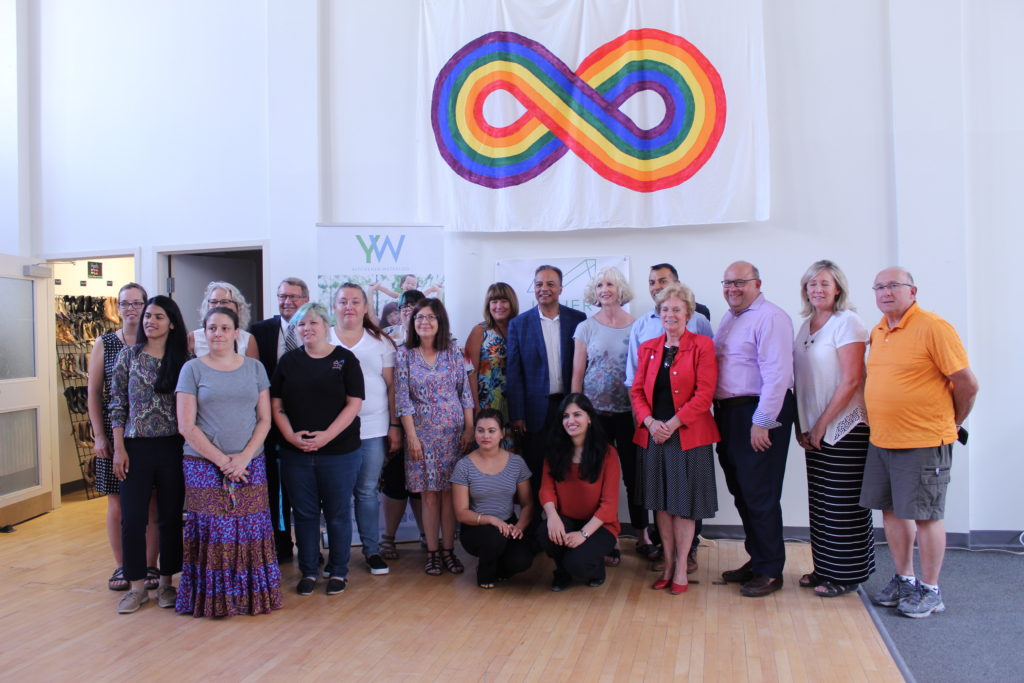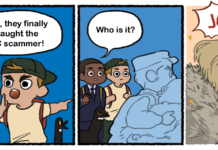
The federal government has announced a new jobs plan that is intended to help newcomers find jobs and learn new skills in the KW area in Young Women (YW) Kitchener-Waterloo on August 15, 2019.
The YW is supported by a shoe store, In Her Shoes, an organization that gives people with work experience and helps them develop online business ideas.
In addition, the foundation plans on training people in digital literacy, business skills and increase job readiness.
MP Raj Saimi announced the Visible Minority Newcomer Women and The Youth Employment and Skills Strategy.
According to the 2016 Census, recent immigrant women who were visible minorities had an unemployment rate of 9.7%.
That’s higher than any other group of people in Canada. For recent immigrants and visible minorities, the $300,000 program had garnered the government’s attention back in December 2018.
The government also provided $7.5 million to 22 selected organizations and deliver newer projects.
For youth, especially young women and girls,
The Youth Employment and Skills Strategy supposed to offer programs that will help them overcome employment barriers and have opportunities in skills and work experiences that they will need for future jobs and gain strong experience.
“Addressing the barriers that newcomer women are facing is critical to supporting their settlement journey.” MP Raj Saimi said.
“By working with YW, Kitchener…we can better ensure that all women have an equal opportunity at success and a chance to thrive in the community. We are committed to ensure that every Canadian has the opportunity to succeed and build a better life for themselves and their families.”
While the jobs plan Saimi announced and their plan within YW and In Her Shoes was ambitious, there are still questions regarding rising unemployment (5.7% from last month) and the services Young Women provide specific minorities.
Imprint talked with Saimi about the current state of women and employment.
Q: Why is this announcement made in YW?
R: “Because YW has already experienced and has the capacity to build on the program so they already dealing and helping with women, newcomers and youth already so this is building on top of that program.”
Q: How can Visible Minority Newcomer Women Funding maintain more job opportunities from unemployment rise?
R: “What we are finding when they entered or trying to enter the labour force, sometimes there are certain barriers that are there, and one of the barriers is the lack of profit, experience sometimes daycare is an issue, and sometimes…language skills might be an issue. So we are trying to do is to create an environment and create programs that through YW to make sure we have more opportunities to enter the workforce. It also brings a sense of inclusion and belonging. So that is what we are doing, we are giving them practical skills that will help them come to the labour force.”
Q: What ways can these help future employers in the private sector?
R: “We’ve done that in a lot. This is one of the ways is obviously trying to make sure that the skill set of youth and newcomer women has risen and also make sure to have summer jobs which are very successful programs by the private sector and parts of the non-profit sector can access government funding to hire someone roots so there’s a lot of programs going on. There was an expert catalogue in Littleton that was put together and they have consultations and some of the recommendations for them, specifically with the youth, is not to have a broad-based approach but have a more tailor-based approach. For example, someone goes to a job interview and they might have clothing, sometimes they need mentors or sometimes they don’t have high-speed internet. So it’s not just ‘One-Size fits all’, it’s more of a cohesive approach to make sure we are dealing with the challenges each individual has.”
Q: What ways would this help students who want to work part-time?
R: “Right now we have Canada summer jobs for them, specifically directed towards children and we made some modifications in that program. So now between the ages 15 – 30, the students, even if they are not one, can still gain access to Canada’s summer jobs through an employer. I think it has been very successful and the government invested more money this year to make sure we can continue providing summer jobs to employers.”
Imprint later talked with Victoria Clark about In Her Shoes and the concerns with other minorities.
Q: Why is the announcement made in YW?
Victoria Clark: “The announcement is a big deal for us. It’s a big deal because it’s money that is really important to us. It allows us the program we think is unique. I think that we want to celebrate that and we should thank the federal government for trusting us with that money but also doing the announcement like this will allow us to give us a little buzz for that program. This is a program that needs buzz because we need to be able to attract participants but we also need to able to attract supporters. So people who would donate their shoes and accessories that we sell in order to generate revenues for the program.”
Q: How can IHS support women, girls and trans people facing financial difficulty?
V: “I think we heard from the youth that was speaking today about some of the barriers that are very difficult to find employment in this community especially when you are a newcomer and you don’t have Canadian experience. I think that we have a lot of newcomers who have wonderful skills, talents, and ideas and they just can’t break through that new Canadian experience barrier. So working with us, in this program, allows us to gain Canadian experience that they can put on their resume but also allows them to perhaps take their skills and they could be self-employed which is often people’s end goal.”
Q: Are there any special assistance for women who are on OSAP?
V: “There are some financial requirements in terms of the ability to access the program, but I don’t think OSAP would include participation.”
Q: How can IHS help recent immigrants find work?
V: “People who are in the program would learn skills such as retail skills and digital marketing skills, they learn about things like creating websites, product photography and creating advertising. These are all skills that they can take in their own jobs if they chose to set up their own business but they can also take them to an employer to search and see if they could learn implausible skills (?).
Q: How can IHS help recent immigrants integrate or thrive in Canadian society?
V: “One of the things we do is we teach them technical skills of digital marketing and business development. We also have a mentorship program that connects the participants with businesswomen in the community. So that networking component is very helpful for people as they want to build their circles and increase the opportunities for them.”
Q: How would IHS help people with physical and learning disabilities?
V: “Both of the programs have funding available to help people who have a wide range of disability challenges. We have funding for people if people needed translation services to provide people with learning disability services to provide that. We do have the services to accommodate all sorts of special requirements.”




























